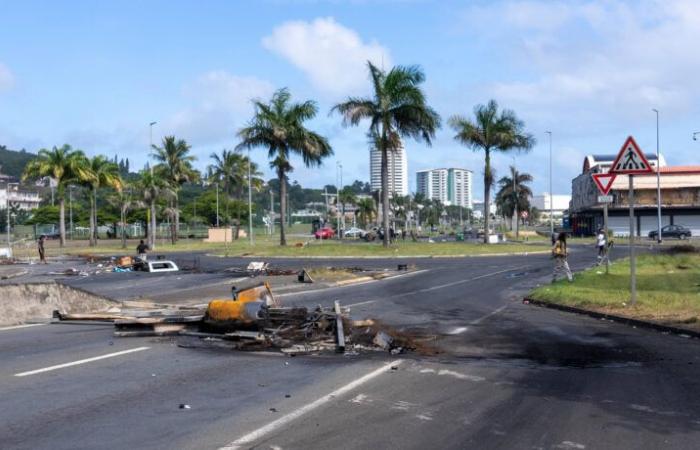
The riots in New Caledonia, which began on May 13, continued this summer. The clashes left an eleventh person dead on August 15. And the absence of a fully functioning government in Paris does not allow for a way out of the crisis to be prepared through dialogue with the State. “We will have to act, and quickly,” warns non-independence senator Georges Naturel. “We are reaching a health crisis and soon a humanitarian crisis,” he says, mentioning the future risk of food riots if nothing is done on the economic level.
A land-based economy
The destruction of businesses and the obstruction of traffic have in fact plunged New Caledonia into crisis. “The Nickel du Nord plant is closing, with 1,200 more unemployed, the main social landlord on the island, which houses one in ten Caledonians, is in default of payment,” lists the senator, who could have added dozens of examples of local economic institutions in great difficulty.
“Bercy had a commitment until the end of August, with aid to businesses, recalls the senator, but with a government managing day-to-day affairs, we are plunging into complete instability on the 1is September,” he warns. “For businesses and communities that are bled dry, it’s a leap into the unknown,” he concludes.
Emergency and reconstruction plans
While waiting for a government in Paris, local institutions are working on an emergency and reconstruction plan for the archipelago. The government of New Caledonia, where pro-independence and loyalists coexist, presented a plan this week called S2R. An acronym for “safeguarding” in the immediate term, “rebuilding” in the medium term, and “reconstruction” for the future. A plan on which Caledonians are called to vote online until September 29. It already provides for drastic cuts in the local pension system, which is also on the verge of bankruptcy.
The Congress of New Caledonia, the local parliament, also adopted a five-year reconstruction plan on August 28, which notably requests 4.2 billion euros over 5 years from the State to rebuild the archipelago. This plan, which remains to be negotiated with the future French government, received broad support with 40 votes in favor, 8 abstentions and one against. In this context, the Congress, in its diversity, asks the President of the Republic to appoint an interministerial commission for the safeguarding and reconstruction of New Caledonia as soon as a new Prime Minister is appointed.
Uncertain Congressional Renewal
But behind this large vote, the local political landscape is changing. The bodies of the Congress, including the presidency, will be renewed tomorrow, Thursday, August 29. Roch Wamytan, a pro-independence activist, has chaired the institution since 2019, thanks to the support of 3 elected officials from the Oceanian Awakening party, who defend the interests of the Wallisian and Futunian community, which is numerous in the archipelago.
But this support, continuous since 2019, is under threat. An elected official from this small pivotal party resigned from the government today, a sign that tensions are high. Without their vote, Roch Wamytan, a pro-independence figure, could lose the presidency.
Divisions among the independentists
All the more so since divisions are raging within the pro-independence camp. The FLNKS congress, which normally brings together the different pro-independence families, is due to hold a congress this weekend, already postponed last June. But two parties, the Progressive Union in Melanesia and Palika, have announced that they will boycott the event. The cause is disagreements over the participation of the Field Action Coordination Unit (CCAT) in this Congress, and more broadly over the attitude to adopt in the face of the riots.
Divisions that also exist in the non-independence camp. Between those who still advocate dialogue, and those who, like former Secretary of State Sonia Backès, are now talking about a partition of the territory. A hypothesis that Georges Naturel does not want to hear about. For the non-independence senator, “we will need a sacred union to rebuild the territory, people are fed up with political wars”. A wish that may seem pious in view of the divisions that have animated the territory for almost four months.





